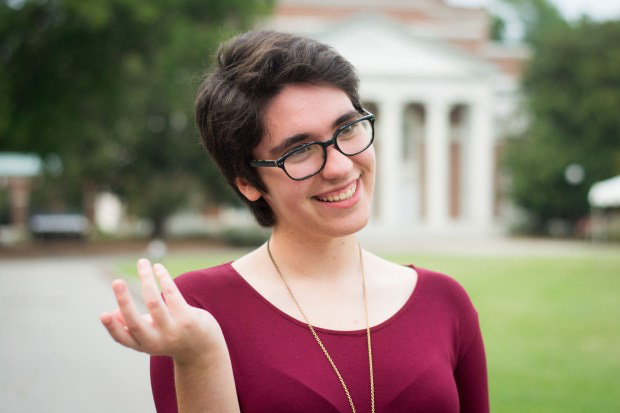I was diagnosed with clinical depression almost three years ago.
In retrospect, it shouldn’t have been that much of a surprise considering the turbulence of the months leading up to it. However, when my nebulous symptoms were finally given a name and a medical textbook definition, it changed my outlook on what was happening to me.
My main source of anxiety over this was, admittedly, the stigma I knew this would carry.
I had internalized the diagnosis as more of a condemnation and testament to my inability to function normally, rather than a validation that brought relief.
I felt alienated and turned to the queer community, one that had already guided me through my confusion over gender and sexuality, for support. However, I was hard-pressed to find a lot of positive dialogue surrounding mental health issues in mainstream LGBTQIA+ representation. It seemed that after homosexuality was removed from the Diagnostic and Statistical Manual (DSM) of the American Psychiatric Association, individuals have committed to portraying queer folk as neurotypical, happy, and well-functioning members of society. While that public relations route might seem positive concerning efforts to convince the fringes of society that still remain, politically, in the 1950s, it has unintended consequences for youth coping with mental illness while also trying to figure out their orientation.
The face of the LGBTQ+ rights movement in the media has defaulted to gay, cisgender, white, upper middle class individuals, a strategy that was an assimilatory tactic to create more empathy for the cause among straight people through emphasizing certain familiar traits, at the risk of alienating some of the more marginalized members of the community.
This included the move to disassociate mental illness from sexual orientation.
We claim to be a movement of justice and of kinship, but have become stratified due to the dichotomy between the resources of privileged and the exclusion of those who deviate from what is expected from a socially-acceptable queer person. Respectability politics have taken over our struggle, favoring the heteronormative standard over creating a new framework of living.
There needs to be a concentrated effort to make sure all members of the community have visibility.
The mentally ill.
The differently-abled.
The gender non-conforming.
The working class.
The people of color.
Our movement is disjointed and ineffective without solidarity. It’s important to provide support for the new generation of LGBTQ+ activists and community members.
We need to see all the different facets of queer people, not just the ones that most resemble the heteronormative power structure. Highlight the turbulences that come from being a member of the community. Acknowledge your different struggles, highlight our diversity, and strive for a more inclusive tomorrow.
We have to be a safe space for the kids that are desperate for some semblance of acceptance and love, to remind them that they matter.
This blog post was written by Point Scholar Sydney Roberts[break]
 Sydney Roberts, who identifies as queer and non-binary, grew up in a conservative town in Oregon. In high school, Sydney was active in many community service organizations including serving as President of the Key Club and National Honor Society, working closely with the Corvallis PFLAG as well as the Portland Q Center. In addition, Sydney was the Director of LGBTQIA+ Projects/Co-Founder of the West Albany Feminist Collective, as well as an active member of the school’s Speech and Debate program, Youth and Government Legislative Assembly, and cross-country team.
Sydney Roberts, who identifies as queer and non-binary, grew up in a conservative town in Oregon. In high school, Sydney was active in many community service organizations including serving as President of the Key Club and National Honor Society, working closely with the Corvallis PFLAG as well as the Portland Q Center. In addition, Sydney was the Director of LGBTQIA+ Projects/Co-Founder of the West Albany Feminist Collective, as well as an active member of the school’s Speech and Debate program, Youth and Government Legislative Assembly, and cross-country team.

